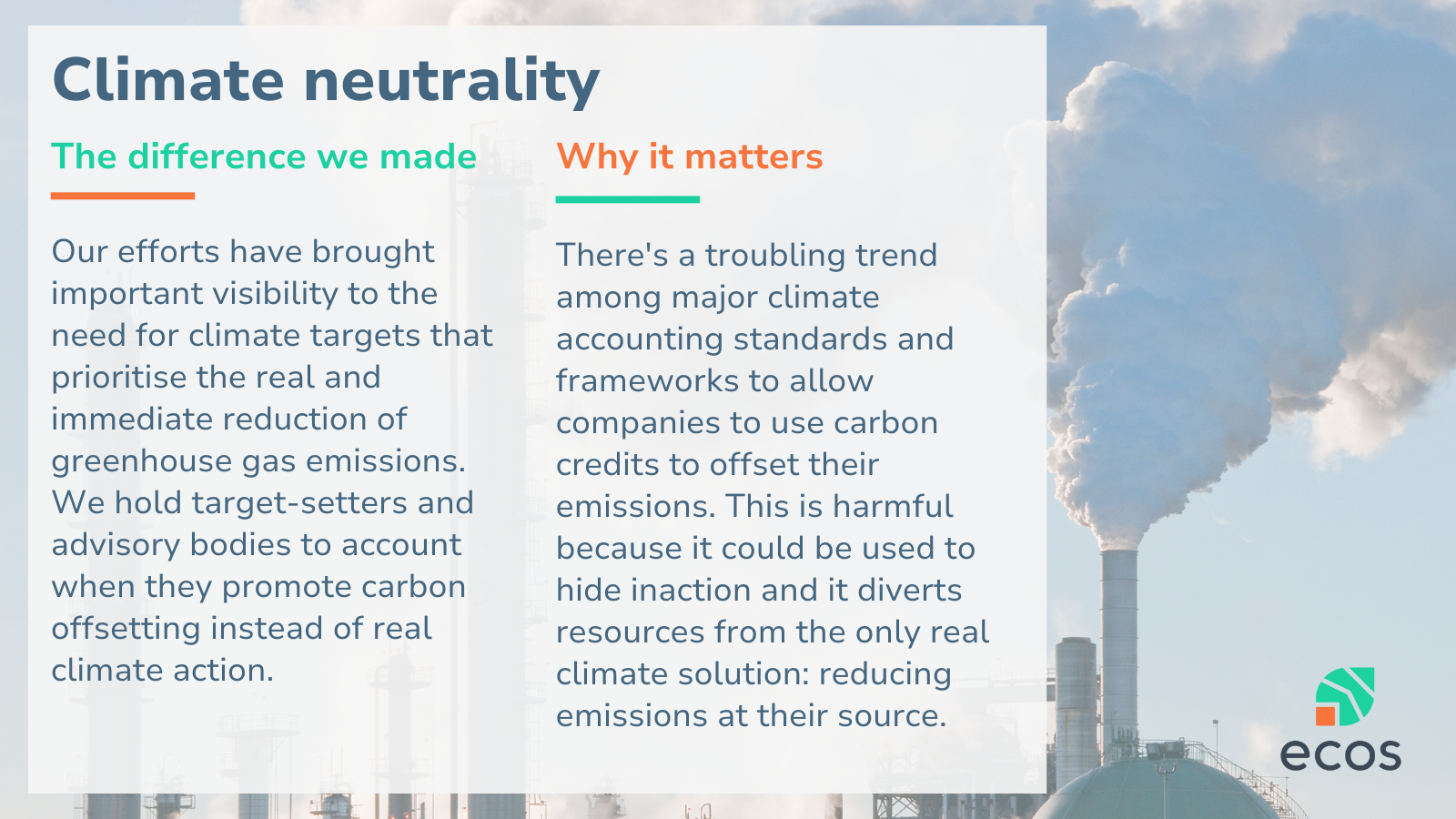Turning the tide of carbon accounting standards
As the climate crisis worsens, pressure is mounting on corporations to take meaningful action – ushering in a whirlwind of dubious climate pledges. Carbon accounting standards can drive transparency, accountability, and measurable emissions reductions – or they can become a license for greenwashing by creating loopholes that allow organisations to understate their negative environmental impacts. In 2024, ECOS worked to turn the tide towards the science-based standards that are needed to achieve our global climate goals.

2024 witnessed an alarming push to allow companies and countries to use carbon credits to offset their emissions – made clear, for example, by the public statement of the Science-Based Targets Initiative’s (SBTi) Board of Trustees. This reflects a larger trend of bending carbon accounting rules in ways that help big polluters keep polluting.
The only way to actually decarbonise is to reduce emissions at their source. Standards that allow companies to rely on carbon credits make it possible to avoid the harder work of reducing (particularly indirect) emissions while claiming climate leadership.
Today, carbon accounting standards are at a tipping point. With all major standards and frameworks under revision, it is as important as ever to prioritise real and immediate emissions reduction within companies’ and countries’ own boundaries. From SBTi’s and the International Standardization Organization’s (ISO) net zero guidelines to Greenhouse Gas Protocol’s and ISO’s carbon accounting standards—what happens next will shape the future of global climate action. If carbon offsetting is allowed to take precedence it will delay decarbonisation efforts, decrease funding where it is needed most, and jeopardise our ability to keep global warming within 1.5°C.
In 2024, our efforts have brought important visibility to the need for science-based standards. In July, mobilising more than 80 civil society organisations, we sounded the alarm with a joint statement rejecting the use of carbon offsets. With coverage in top-tier international media (such as The Wall Street Journal and Financial Times), we created a groundswell of support for meaningful carbon accounting guidelines and metrics. Shedding the spotlight on this topic contributed to SBTi not taking further action on their public statement – but our advocacy urging these bodies to uphold scientifically sound methodologies for tracking corporate climate action will continue.
ECOS has also been active behind the scenes to shape the revisions of all major carbon accounting and net zero guidance documents from ISO and the GHG protocol. It is critical that these standards are ambitious because they can impact the implementation of key legislation. For example, the EU’s Green Claims Directive will set rules on how to communicate green claims to consumers – but a lot of the methodological details are likely to be left to more technical standardisation documents, such as the international standard ISO 14060 on net zero aligned organisations.
The creation and revision of standards are long-term processes, and ECOS is committed to be part of them from start to finish. In the current political context where deregulation and market flexibility reign, the work of civil society organisations is as crucial as ever to hold the private sector to account for its climate impacts and encouraging rapid decarbonisation of value chains.
In 2025, we will continue working to ensure companies play their part in the green transition with carbon accounting and net zero standards that are backed by solid methodologies, requiring organisations to take accountability for their true climate impacts.


